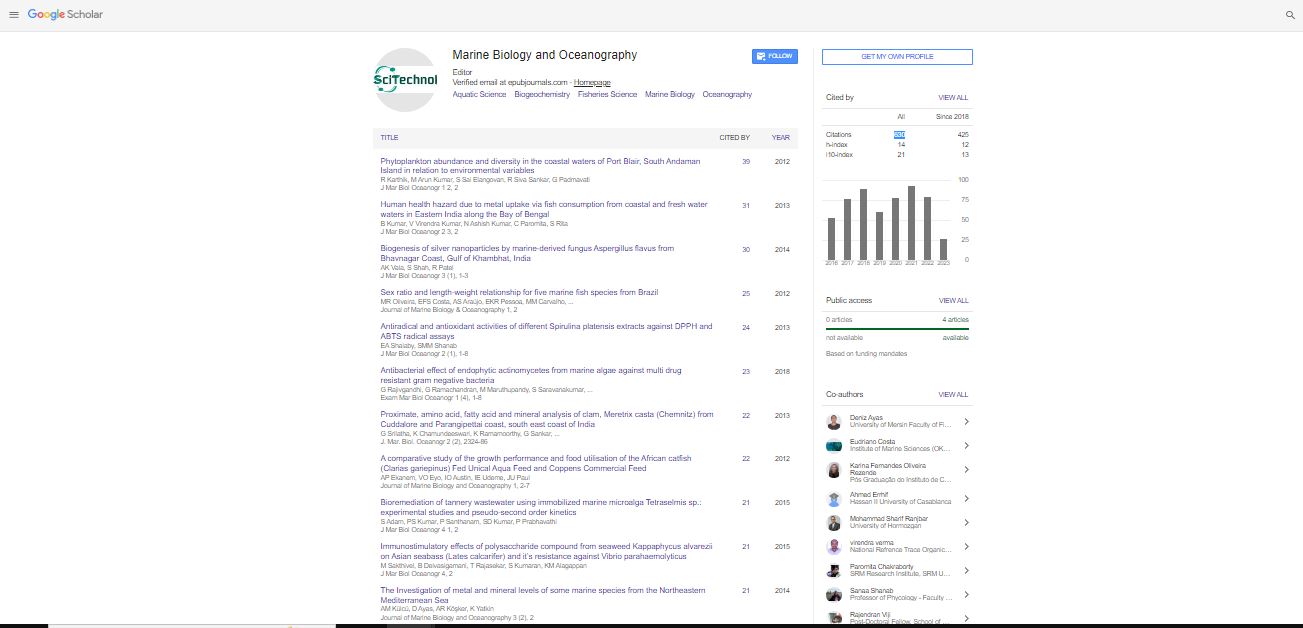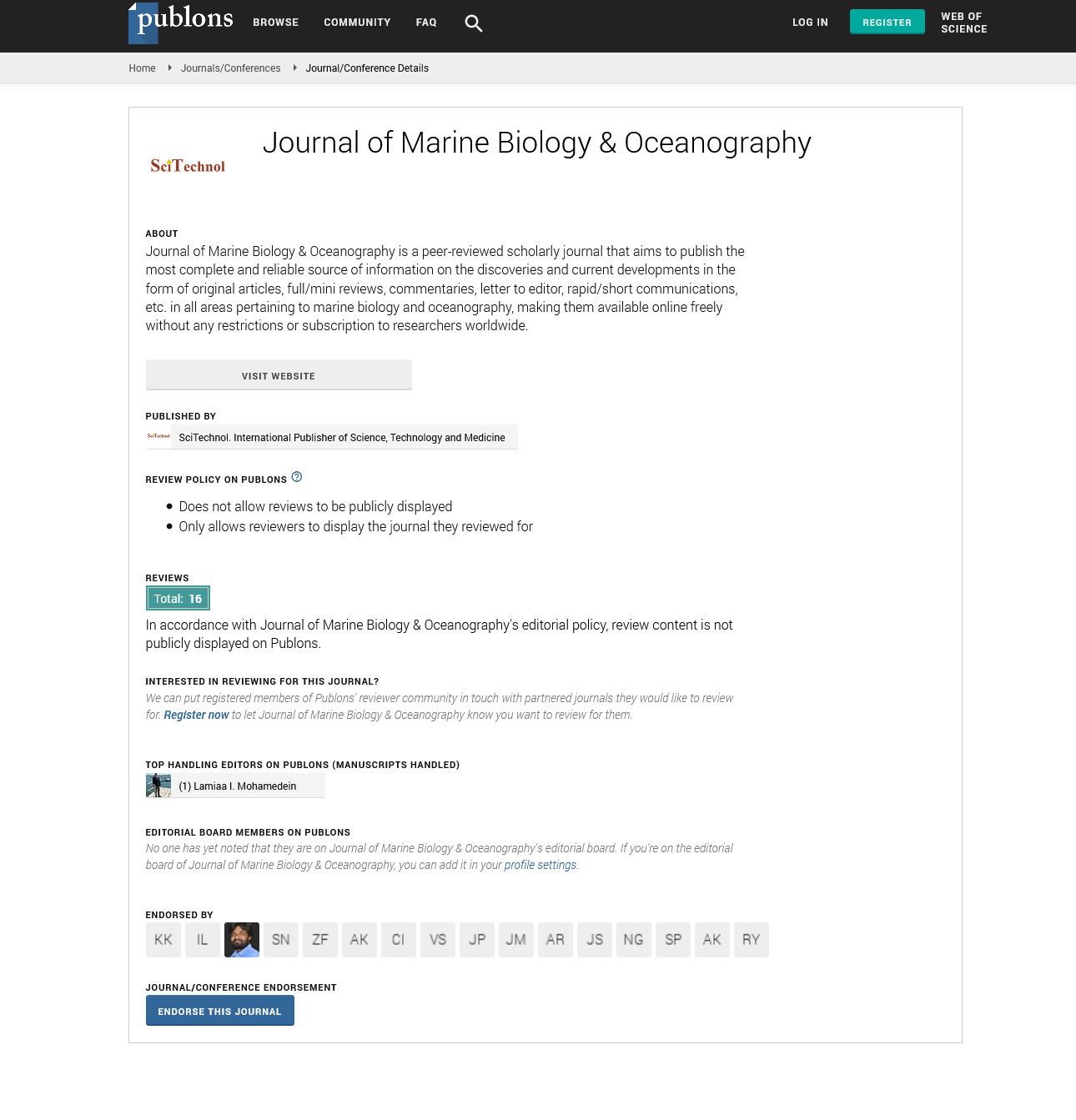Life in the salinity gradient: Discovering mechanisms behind a new biodiversity pattern
Hendrik Schubert
University of Rostock, Germany
: J Mar Biol Oceanogr
Abstract
Life in the salinity gradient: Discovering mechanisms behind a new biodiversity pattern Environmental gradients are ubiquitous features of all aquatic ecosystems. Recently discovered paradoxical maximum of planktonic protistan species in the salinity gradient of the Baltic Sea revealed an inverse trend of species number/salinity relation if compared with previously accepted species-minimum model for macrozoobenthos. In the presentation long-term data on organisms of different size classes and ecological groups are reviewed to show that eukaryotic and prokaryotic microbes in plankton demonstrate maximum species richness in the challenging zone of critical salinity 5-8 where the large-bodied bottom dwellers (macrozoobenthos, macroalgae and aquatic higher plants) experience dramatic salinity stress which leads to impoverished diversity. Basing on this, a new conceptual model to explain why diversity of small, fast-developing, rapidly evolving unicellular plankton organisms’ benefits from relative vacancy of brackish-water ecological niches and impaired competitiveness therein are presented. Hutchinson’s Ecological Niche Concept, species-area relationships and the Intermediate Disturbance Hypothesis are considered as a theoretical framework for understanding extinctions, speciation and variations in the evolution rates of different aquatic species in ecosystems with the pronounced salinity gradient. The work presented is one of the results of a still ongoing bilateral German-Russian cooperation on ecology and ecophysiology of brackish habitats “USElabâ€Â.
Biography
Hendrik Schubert after completing his PhD in Plant Physiology in 1990 and Postdoctoral studies at the University of Amsterdam, he became appointed Professor for Plant Ecology at the University of Greifswald in 1998. Since 2002, he holds the Chair of Ecology at the University of Rostock and also served as Director of the institute, Dean of the faculty and President of BMB as well as LTER-D and is Senator of the University since 5 years. He published some books, more than 100 papers in reputed journals and is Editor-in-Chief of RMB.
E-mail: hendrik.schubert@uni-rostock.de
 Spanish
Spanish  Chinese
Chinese  Russian
Russian  German
German  French
French  Japanese
Japanese  Portuguese
Portuguese  Hindi
Hindi 
